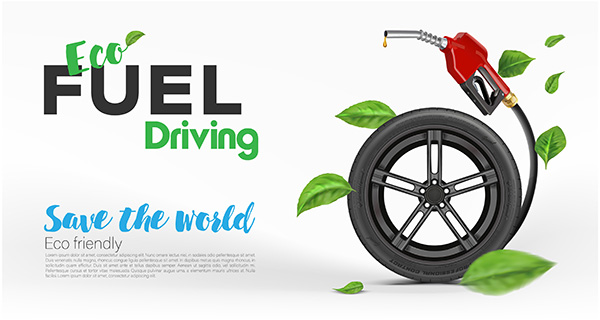
With rising fuel costs and growing environmental concerns, improving your car's fuel efficiency is more important than ever. Whether you're a daily commuter or someone who enjoys weekend road trips, enhancing your vehicle's fuel economy can save you money and reduce your carbon footprint. But how exactly can you achieve this? Let's explore some practical and effective ways to improve your car's fuel efficiency.
Fuel Efficiency
Before sharing the tips, let's explain what fuel efficiency means. Fuel efficiency refers to how well a vehicle converts fuel into energy to power the engine. It's typically measured in miles per gallon (MPG). The higher the MPG, the more efficient the vehicle is at utilizing fuel. Improving fuel efficiency saves money on fuel, reduces the frequency of fill-ups, and lowers greenhouse gas emissions.
Keep Your Engine Tuned
One of the simplest yet most effective ways to improve fuel efficiency is to keep your engine properly tuned. Regular engine tune-ups can significantly boost your car's performance and fuel economy. A poorly maintained engine can consume much more fuel than a well-maintained one. This involves checking and replacing spark plugs, fuel injectors, and other essential components.
Check Tire Pressure
Tire maintenance is crucial for fuel efficiency. Under-inflated tires create more rolling resistance, making your engine work harder and consume more fuel. Regularly check your tire pressure and keep it at the manufacturer's recommended level.
Change Oil Regularly
Using the correct motor oil and changing it regularly can improve fuel efficiency. High-quality, low-friction motor oil reduces engine wear and tear and ensures smooth operation. For the best results, be sure to use the grade of motor oil recommended by your vehicle's manufacturer.
Driving Habits Matter
Avoid Aggressive Driving
Fast acceleration, speeding, and abrupt braking can significantly decrease your car's fuel efficiency. Aggressive driving can lower your gas mileage by up to 33% on the highway and 5% in the city. Instead, practice smooth and steady driving. Gradual acceleration and deceleration not only save fuel but also extend the life of your engine and brakes.
Use Cruise Control
When driving on highways, using cruise control can help maintain a constant speed and, consequently, improve fuel efficiency. Constantly fluctuating speeds can waste fuel, whereas cruise control helps keep your vehicle at a steady pace, optimizing fuel consumption.
Reduce Idling
Idling consumes fuel without moving the car. Modern engines are designed to use less fuel when starting than idling for extended periods. If you anticipate being stopped for more than a minute, it's more fuel-efficient to turn off the engine and restart when you're ready to move again.
Optimize Vehicle Load and Aerodynamics
Lighten the Load
Carrying excess weight can reduce fuel efficiency. For every 100 pounds of extra weight, your car's fuel economy can decrease by about 1-2%. Remove unnecessary items from your vehicle, especially heavy ones. Travel light to ensure optimal fuel efficiency.
Improve Aerodynamics
Roof racks and carriers can significantly affect your vehicle's aerodynamics and reduce fuel efficiency. If you're not using them, it's best to remove these items to decrease drag. Keeping windows closed at high speeds also helps maintain your car's aerodynamics, as open windows create wind resistance that can decrease fuel efficiency.
Smart Fuel Choices and Practices
Choose the Right Fuel
Always use the type of fuel recommended by your vehicle's manufacturer. Using higher-octane fuel than necessary does not improve fuel efficiency. Stick to the manufacturer's guidelines to ensure optimal performance and efficiency.
Plan Your Trips
Combine errands into one trip rather than making multiple short trips. A warm engine runs more efficiently than a cold one, so consolidating your trips can save fuel. Avoid rush hour traffic if possible to reduce time spent idling and in stop-and-go conditions.
Leverage Technology
Use GPS and Navigation Apps
Using GPS and navigation apps can help you find the most efficient routes, avoiding traffic and road construction. These apps can also provide real-time traffic updates, helping you avoid fuel-wasting traffic jams.
Invest in a Fuel-Efficient Vehicle
If you're in the market for a new car, consider fuel efficiency as a key factor in your decision. Hybrid and electric vehicles, as well as models with advanced fuel-saving technologies, can offer significant savings over time.
Ready to save on fuel costs? Schedule a comprehensive maintenance check at B & L Automotive and see the difference proper care can make.